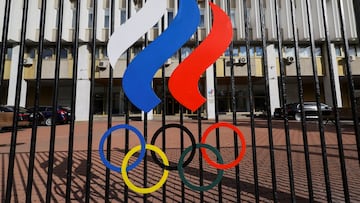OLYMPICS
Why did the US boycott the 1980 Summer Olympics?
This year marks the forty-fourth anniversary of the 1980 Summer Olympics held in Moscow, which were boycotted by the United States.

This summer, the Olympics will be held in Paris, France, and these games mark the forty-fourth anniversary of the US team’s boycott of the games in 1980 when they were held in Moscow. The Soviet Olympic Committee would return the favor in 1984 when the games were held in Los Angeles, highlighting the distrust between the countries as the Cold War was coming to an end.
The stated reason for the boycott by the United States was the Soviet invasion of Afghanistan, which occurred in December 1979 —less than a year from when the games were scheduled to take place. The lack of participation from the US led to a sweep of gold medals by the USSR and East Germany, who won 127 (80 just by the USSR) of the 203 golds up for grabs during those games. Four years later, without Soviet athletes, the US would win 87 golds.
Which countries followed the US-led boycott?
Sixty-six additional countries followed the US lead and did not send athletes to Moscow. However, the only countries in Europe to follow suit were Norway and West Germany, with all others opting to send their Olympic delegations to the games.
China did not send athletes to the 1980 games either, but that was less related to the US-led boycott and its opposition to the participation of Taiwan, which violated the One China policy. The 1984 games in Los Angeles would be the first with a delegation from China since 1948; one year before the establishment of the People’s Republic of China would be officially proclaimed by Mao Zedong a year later.
When China hosted the Winter Olympics in 2022, the country was subject to another US-led boycott, but this time, it only affected diplomatic officials and not athletes. When announcing the boycott, the then-White House Press Secretary Jen Psaki said that it was being imposed to protest “the PRC’s ongoing genocide and crimes against humanity in Xinjiang and other human rights abuses.”






